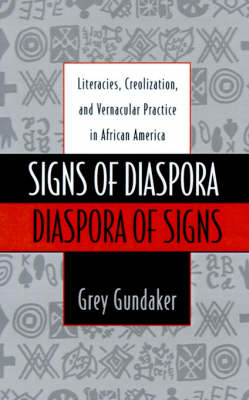Commonwealth Center Studies in American Culture
1 total work
Challenging monolithic approaches to culture and literacy, this book looks at the roots of African-American reading and writing from the perspective of vernacular activities and creolization. It shows that African-Americans, while readily mastering the conventions and canons of Euro-America, also drew on knowledge of their own to make an oppositional repertoire of signs and meanings. Distinct from conventional script literacy on the one hand, and oral culture on the
other, these "creolized" vernacular practices include writing in charms, use of personal or nondecodable scripts, the strategic renunciation of reading and writing as communicative tools, and writing that is linked to divinaton, trance, and possession. Based on extensive ethnographic research in the
Southeastern United States and the West Indies, Gundaker offers a complex portrait of the intersection of "outsider" conventions with "insider" knowledge and practice.
other, these "creolized" vernacular practices include writing in charms, use of personal or nondecodable scripts, the strategic renunciation of reading and writing as communicative tools, and writing that is linked to divinaton, trance, and possession. Based on extensive ethnographic research in the
Southeastern United States and the West Indies, Gundaker offers a complex portrait of the intersection of "outsider" conventions with "insider" knowledge and practice.
